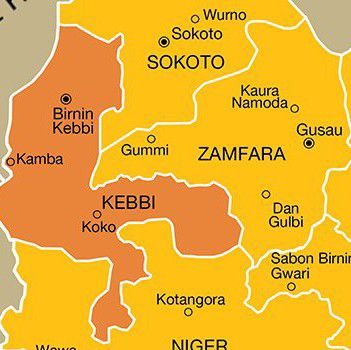The United Nations Population Fund (UNFPA) on Tuesday lamented that over 50 percent of Sokoto State population were dependents.
The fund advised the state to take necessary measures to control the trend.
Musa Muhammad-Wamako, UNFPA Director Programmes in Sokoto, said this on the sideline of a two-day Validation Workshop for the Integration of Demographic Dividends into the Budget Process in Sokoto State.
It is holding in Birnin Kebbi.
The workshop was organised by the state Ministry of Budget and Economic Planning in collaboration with UNFPA.
The director described the development as alarming and required urgent attention of the state government to reverse the trend by adopting measures towards a controlled population.
He pointed out that population growth, not only in Sokoto State but also in the Northwest region, was very high, adding that population was very vital to economic growth and development.
Commenting on the workshop, the director said it was a follow-up to two others on demographic dividends in previous years, adding that after the ongoing validation, they would come up with a roadmap to facilitate sound budgetary processes.
Muhammad-Wamako said the workshop wanted participants to ensure that all the remaining activities in the State Roadmap captured in the 2022 and 2023 budgets received adequate attention in the 2024 budget.
Also, Aminu Ibrahim, Deputy Clerk, Sokoto State House of Assembly said that the demographic dividends started in Abuja with first and second programmes in Kebbi to ensure proper planning for the state.
He, however, decried a wrong perception of many people that the state government was trying to introduce family planning.
“This is just a programme that will assist government to properly plan ahead for the good of the citizens, it has nothing to do with family planning.”
Ibrahim identified lack of proper planning and implementation by successive governments as one of the major problems of Sokoto State and Nigeria as a whole and called for a change of attitude.
Prof. Noah Olasehinde, the Programme Consultant from University of Ibadan, recalled that the programme started two years ago with him providing the capacity support to the state.
He said about 12 to 13 MDAs were brought together with a view to building their capacity towards proper planning in budgetary processes for sound economic growth.
Olasehinde commended Sokoto State for pioneering efforts in integrating demographic dividends into their budgetary process, saying that the state had set a commendable example for others.
He also urged the state to publish its demographic dividends roadmap report and the current DD budget integration report and embark on immediate actions to estimate the DD profile for Sokoto State.


